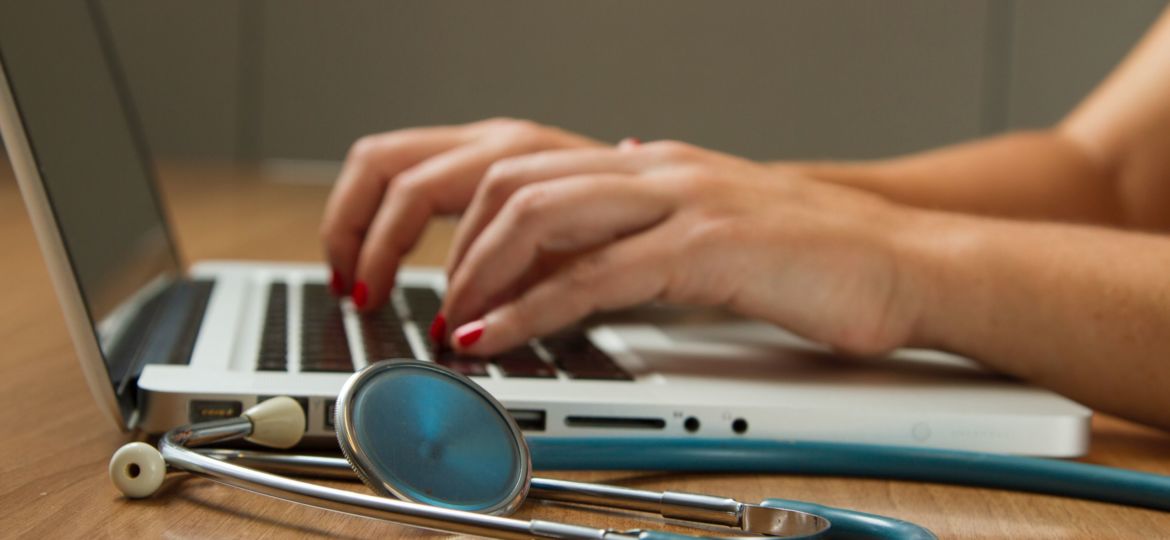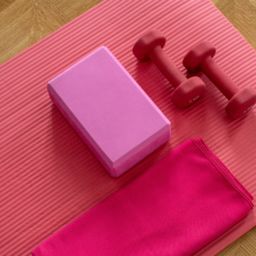
This story was created in partnership with Hancock Health.
Each decade of life welcomes new health milestones, and there are tips and tests you should be aware of that can help guide you along the way. Here are some smart ideas from three local women doctors—all affiliated with Hancock Health—on ways to help you live your healthiest as you move through each age.
THE EXPERTS:
MEG FITZSIMMONS, MD, FAMILY & PRIMARY CARE
HANCOCKREGIONALHOSPITAL.ORG
CAROLINE ERINGO, DO, GYNECOLOGY, OBSTETRICS/GYNECOLOGY
HANCOCKREGIONALHOSPITAL.ORG
LORI SANFORD, MD, DERMATOLOGY
HANCOCKDERMATOLOGY.COM
WHAT TO DO FOR YOUR HEALTH IN YOUR 20s

Dr. Fitzsimmons (primary care):
In your 20s, the main thing is to develop good, healthy lifestyle behaviors, like establishing healthy eating habits by staying away from processed foods and eating foods in their natural state when possible. You should also try to avoid being overweight and obese, which we know is linked to so many health problems. We recommend at least 30 minutes of cardio daily, five days a week. You should limit alcohol intake and avoid nicotine products—and good sleep hygiene is also really important.
I think vaccines are also especially important, and one of the most cost-effective things we can do to keep us healthy. If you’re going off to college and living in a dorm, think about getting the meningitis B vaccine. In addition, doing weight-bearing exercises like walking and running can help keep your bones nice and strong. Contraceptive counseling is also important at this age, so for example, if someone is planning to start a family, they should make sure they start prenatal vitamins at least three months before they try to conceive.
Dr. Eringo (OB/GYN):
We start pap screening at age 21, and then we usually continue with paps every three years. At this time in a woman’s life we typically focus on their periods and irregularity, and we can address irregular periods with birth control pills if they are ready to start on them. We also suggest an HPV vaccination around age 11 or 12, but we talk about it all the way through 26 years of age and sometimes even up to age 45.
Dr. Sanford (dermatology):
In your 20s, I would absolutely recommend starting to use sunscreen regularly, because sun damage actually manifests much later in life. The wrinkles you get in your 40s and 50s are from the sun you got in your 20s, so sun protection is a huge mainstay for preventing long-term complications. Sunscreen can help prevent skin cancer and wrinkles—it’s one of the most important things you can do for your skin.
As far as which sunscreen to choose, I usually recommend a broad-spectrum sunscreen with an SPF greater than 30, and if you’re going to be in the water, look for one that’s water resistant up to 80 minutes. I also typically recommend cream and stick sunscreens instead of sprays, because sprays tend to blow away before they adequately stick, and the coverage is less predictable. In addition to using sunscreen, you can wear broad-rimmed hats, sun protective clothing, sit in the shade, or try to avoid the sun from 10 a.m. to 4 p.m. when it’s the most intense.
IN YOUR 30s
Dr. Fitzsimmons (primary care):
In your 30s, it’s all about maintaining those good lifestyle choices that you established in your 20s. It’s important to know your family history of disease if you can; histories of high cholesterol, hypertension, and diabetes, for example, are things you want to tell your doctor about so you can be screened and look out for them. If you are in a high-risk category for breast cancer, you may want to start screening for mammograms at age 35, otherwise, we usually start screening for breast cancer at age 40. Regardless, talk to your doctor about your own family history and risks that may determine when you and your doctor start screening for different cancers.
If you are healthy, then when you’re in your 30s, I would recommend getting a physical exam every year to every other year. If you have any issues like diabetes, hypertension or high cholesterol, I would go every year. At age 30, our bone density starts to drop a little bit, so starting at age 35, it is recommended to start taking calcium and a vitamin D supplement, as well as to practice a weight bearing exercise like walking. The general recommendation is to get at least 30 minutes of exercise daily, five days a week.

Dr. Eringo (OB/GYN):
The 20s and 30s are generally considered the biggest child-bearing ages, so during this time we screen for HPV and do pap smears, and we start looking into family histories of fertility issues and addressing long-term contraception. If you are considering freezing your eggs, the best time is generally in your mid 20s to early 30s, but usually before age 35, because once we hit 35, the egg supply begins to go downhill. It can also be done earlier if there’s a medical issue or concern.
If there is a desire to try for pregnancy, you can start carrier screenings like sickle cell screening and cystic fibrosis, as well as Fragile X screening, which is a panel that we can order. In the 30s we also talk about diabetes and high blood pressure, and we recommend pap smears every three to five years.
Dr. Sanford (dermatology):
The 30s are a good time to reinforce good sun behavior, but this is also when people can start thinking about doing self-exams for their skin. Know where your moles are, what they look like, and if they’re changing, and think about having someone help you by looking at your back to make sure that those hard-to-see areas are all checked. This is also a good time to start considering skincare products like topical retinol and a good antioxidant serum, like a vitamin D serum. This might also be the time to try adding in Botox or having a light chemical peel to promote skin rejuvenation if that is something you are interested in.
IN YOUR 40s
Dr. Fitzsimmons (primary care):
If there is a family history of colon cancer (for example, a first degree relative like your mother, father, or sister), then you should start screening at age 40 with a colonoscopy, and then repeat it every 5 years. If you are at average risk, then you should start screening at age 45, and then every 10 years after. At this age you should also go get your eyes checked every couple of years; this is about the time that people start needing reading glasses.
In your 40s you should generally get a physical every one to two years, and this is when we typically start screening for high cholesterol. You can have your cholesterol checked once in your 20s and maybe again in your 30s, but the 40s is when we start really treating cholesterol if it’s high, and testing blood sugar as well.
At this age we recommend good lifestyle changes like getting back to wholesome basic foods and away from high fructose corn syrup, and regular exercise is also a great benefit to your cholesterol level. As a physician, one of the big things I talk to people about in their 40s is their weight. We know that obesity increases our risks of so many problems, even sleep apnea, heart disease, reflux, and orthopedic problems. I really want people to know that it’s so important to talk about weight and trying to get that under control in order to reduce some of the complications that we see. I think at this age the two biggest health issues are smoking and weight, and those are lifestyle changes. If we can control those, we can control so many things that people have to deal with in later years.
Dr. Eringo (OB/GYN):
In the 40s, weight gain starts to set in, and we begin to address that with some patients. We recommend beginning mammograms at age 40, and then to have them every year after. In the late 40s, anywhere usually from age 46 to 48, perimenopause can start. As far as birth control is concerned, at this age we tend to see women opt for longer acting birth control options and implants that last for five to six years, so they don’t have to worry about it again until after menopause.
Dr. Sanford (dermatology):
The 40s are when people want to reverse the sun damage they’ve acquired, so this is when we’re focusing on laser resurfacing and using exfoliating acids like glycolic acid and heavier retinols. Skin may be more dry, so heavier moisturizers may be needed, and usually it’s good to start using a little more intense sun protection.
RELATED: HOW WORKING FROM HOME AFFECTS OUR BODIES
IN YOUR 50s
Dr. Fitzsimmons (primary care):
In your 50s, it’s a good idea to keep up on immunizations and make sure you’re updated on your tetanus booster and flu shots every fall. This is the age when we start doing colon cancer screenings for a person of average risk. A colonoscopy is the gold standard, and then Cologuard is the next best option. Cologuard is a boxed testing kit that you can have sent to you, and you basically have a bowel movement in a bucket, and it tests for hidden blood and any tumor markers that a colon cancer or a pre-cancerous polyp might excrete. If you are a smoker, at age 55, you should be screened for lung cancer.
Dr. Eringo (OB/GYN):
At this age we are still recommending mammograms yearly and doing pelvic exams and checking the uterus; we need to make sure that the vulva and vagina are healthy and free of cancer. We do not recommend stopping pap smears until age 65.
For some women this is the time when perimenopause begins, and we also address people wanting a hysterectomy due to irregular bleeding. In general, the average age of menopause is 51.4 years of age. Addressing hot flashes is a biggie during this time, as well as vaginal dryness and pain with sexual intercourse, so what we usually recommend, depending on risk factors, is hormone replacement therapy. For vaginal dryness we can also recommend lubes of various types, both water-soluble and oil based, and if those don’t work, then hormone replacement therapy is often the way to go.

Dr. Sanford (dermatology):
The 50s are when people start paying attention to the changes in their skin that are indicative of chronic sun damage, like wrinkles and roughness of the skin. In your 50s, your skin may not respond as well to sun damage, so sun protection becomes even more important, as well as routine skin maintenance. At this age I also start seeing people consider more invasive procedures like dermal fillers to add volume in the cheeks and the lips, as well as Botox and laser resurfacing.
IN YOUR 60s
Dr. Fitzsimmons (primary care):
In our 60s, really age 65, is when a lot of things change testing-wise; we definitely want to do a bone density test at age 65, but you may want to talk to your doctor about getting one at a younger age if you have a family history of osteoporosis. We start with aortic aneurysm screenings at this time if there is a family history.
Immunizations are important this decade too. We start doing the pneumonia vaccine at age 65, because as we age, our immune system is not as robust. We talk about the shingles vaccine starting at age 60; it’s two shots, two to six months apart. You also want to continue the flu shot every fall. There is also the TDAP shot—it contains the pertussis vaccine that is important if you’re going to be around a new baby. The pertussis shot protects against whooping cough, and if infants get whooping cough, it can be deadly, so if you are going to be a new grandparent and you’re in your 50s or 60s, you should ask your doctor about getting a TDAP shot.
Glaucoma screenings with your eye doctor should also start at age 65, unless you have diabetes or a family history of glaucoma, or are African-American—then you should be screened at age 50. Anyone born between 1945-1965 should also be screened for Hepatitis C, as well as anyone who had a blood transfusion before 1992, because they didn’t screen blood products for Hepatitis C before that date.
Dr. Eringo (OB/GYN):
We recommend discontinuing pap smears at age 65, but we start dealing with a lot of urinary incontinence and leakage at this time of life. To treat urinary incontinence, usually we start with conservative methods, which can be something as easy as pelvic floor muscle therapy and kegel exercises. I think that they do a really good job teaching pelvic floor muscle therapy at Hancock Wellness Center in Greenfield, but if that doesn’t work, we can prescribe medication, or even do surgery.
Dr. Sanford (dermatology):
If people get to their 60s without any problems with their skin, they are pretty darn lucky. If you have never visited a dermatologist before, the 60s are generally a good time to get an exam to do a once-over and look for abnormal skin lesions. We lose oil production as we age, so taking the time to moisturize more often a day, maybe even three times a day, can help—and people who are diabetic or on blood pressure medicine may need even more moisture.
IN YOUR 70s and older
Dr. Fitzsimmons (primary care):
This is when it’s really important to be aware that you’re not 20 anymore! This age is about fall-proofing your house and realizing that your joints and muscle mass are not what they used to be. If you’re able to get rid of stairs, do it. Put grab bars in your bathroom or next to your toilet. Look at the rugs and electrical cords in your home to make sure they aren’t going to trip you up. Wear sensible shoes, but keep moving! It’s important to do cardio and weight training exercises at this age in order to keep your muscle mass as good as possible, but be sensible.
Hip fractures are the No. 1 reason for people to head to the nursing home, and we want to avoid that if at all possible. If your balance is unsteady, please use a cane or a walker—so many people won’t do it because they’re embarrassed, but it’s much better than having a fall that affects your longevity.
Another thing to think about is creating a living will and a healthcare power of attorney. It’s not a fun to think about, but it’s really important. Should something happen to you, someone should know what your wishes are, and if you don’t know where to begin, talk to your doctor. We have forms to point you towards to help start that discussion with your family members.
Dr. Eringo (OB/GYN):
At age 75, we stop doing colon cancer screenings if there are no medical issues. Urine leakage is a big topic of discussion at this time, and we tend to do more hysterectomies at this age. We also start to see cancers popping up at this time, including vulva cancer.
Dr. Sanford (dermatology):
At this age we often see the development of benign, dry lesions that people get on their skin, and even though they can grow quite large and look black in color, they are benign and not cancerous. But the good thing is, that after coming into the dermatologist’s office for these benign lesions, we often do end up finding something else to address, so those lesions can actually be a blessing in disguise.
Stephanie Groves is an Indy-based freelance writer who just ordered a facial sunscreen so she can do a better job of protecting her skin.
All of our content—including this article—is completely free. However, we’d love if you would please consider supporting our journalism with an Indy Maven membership.










